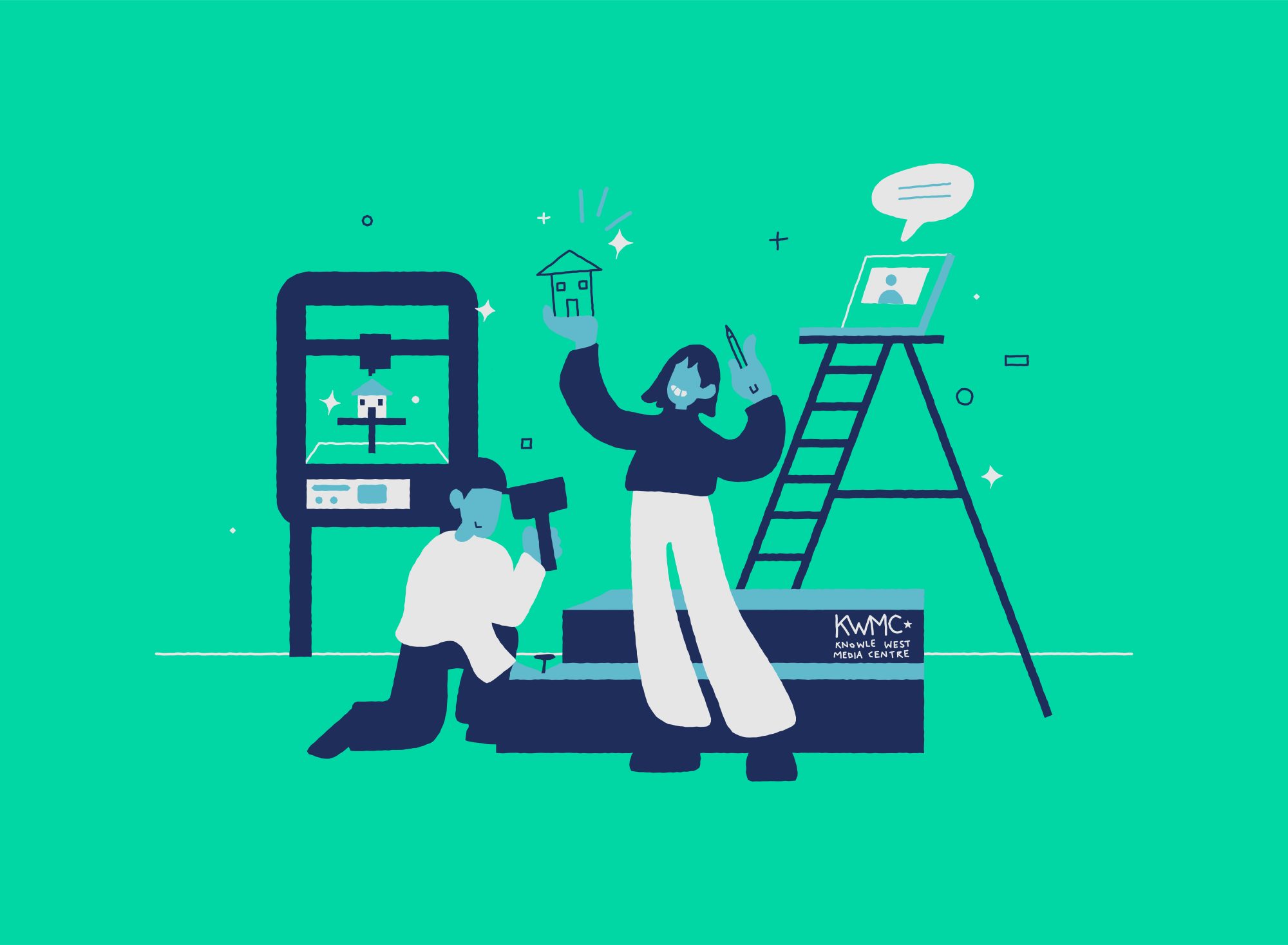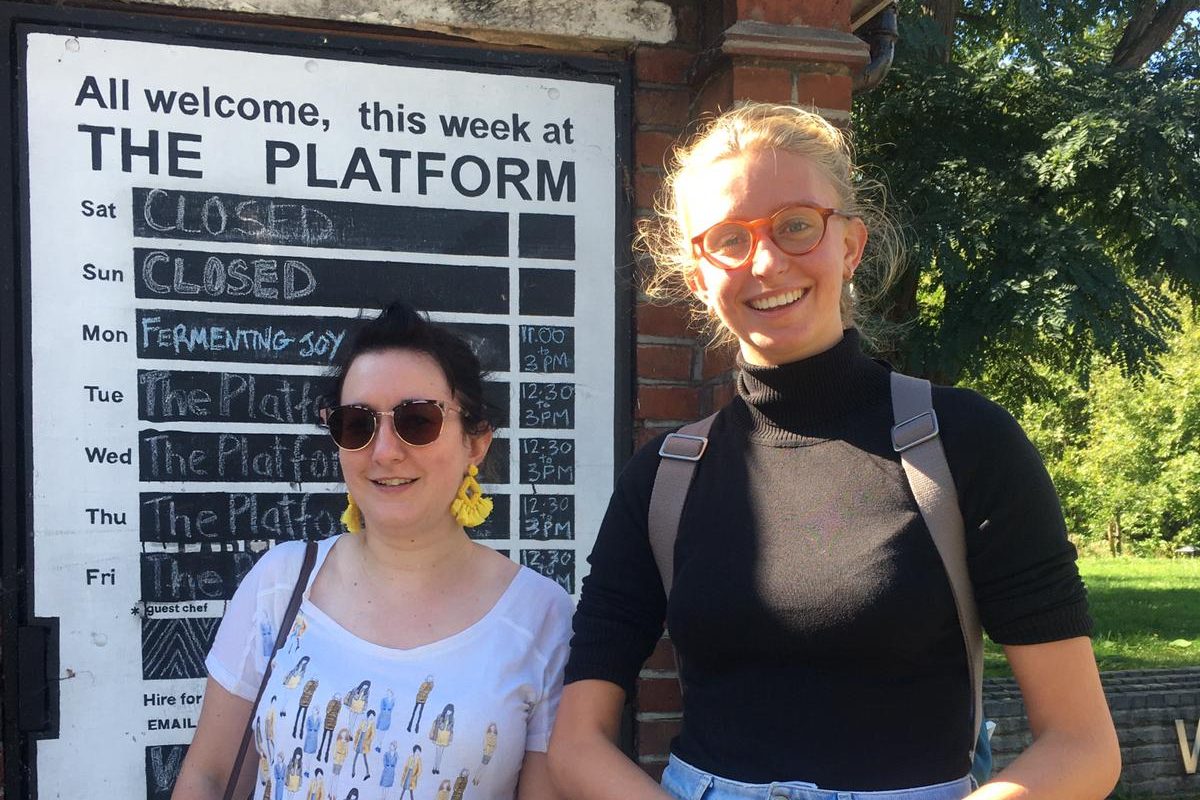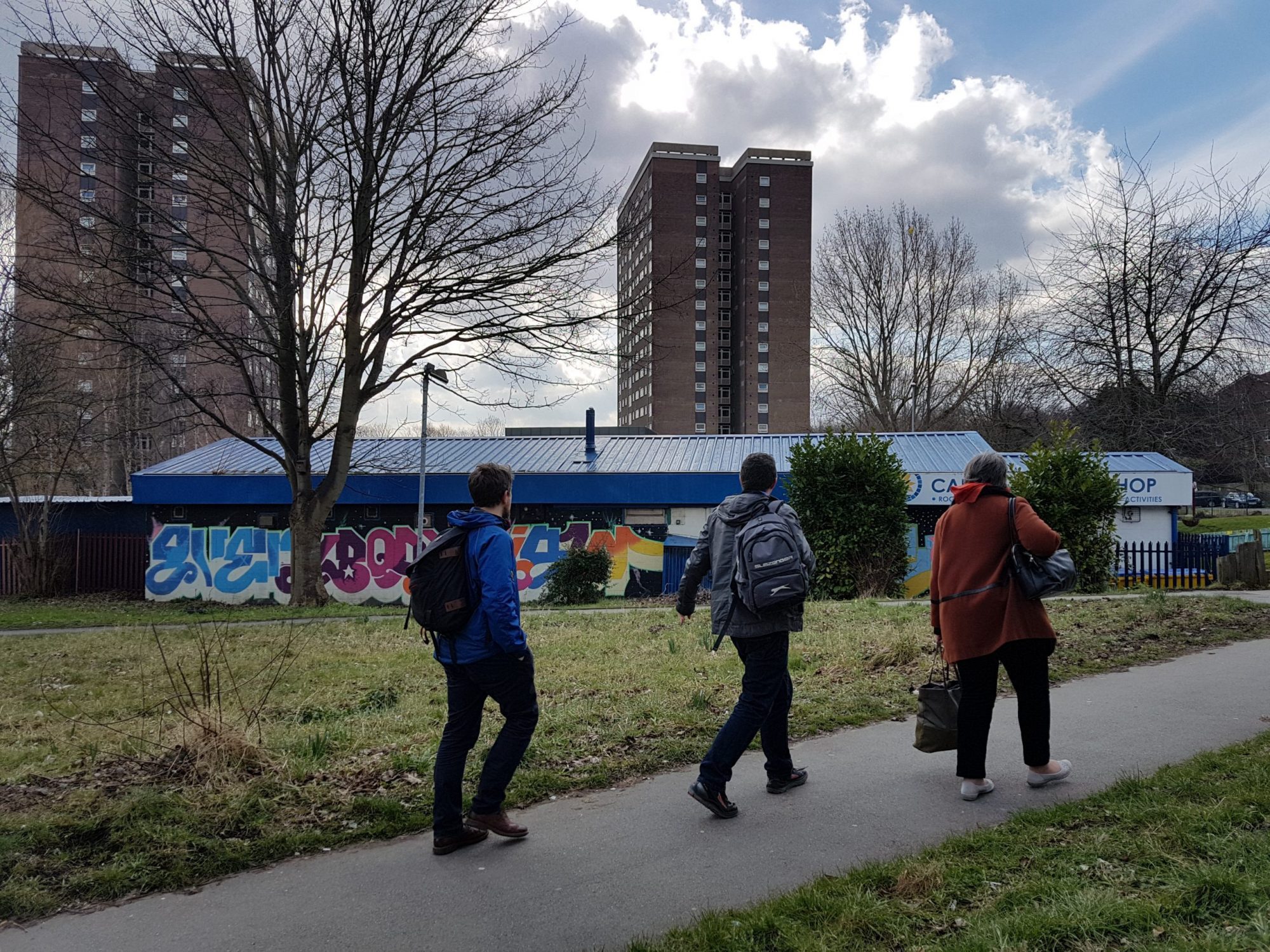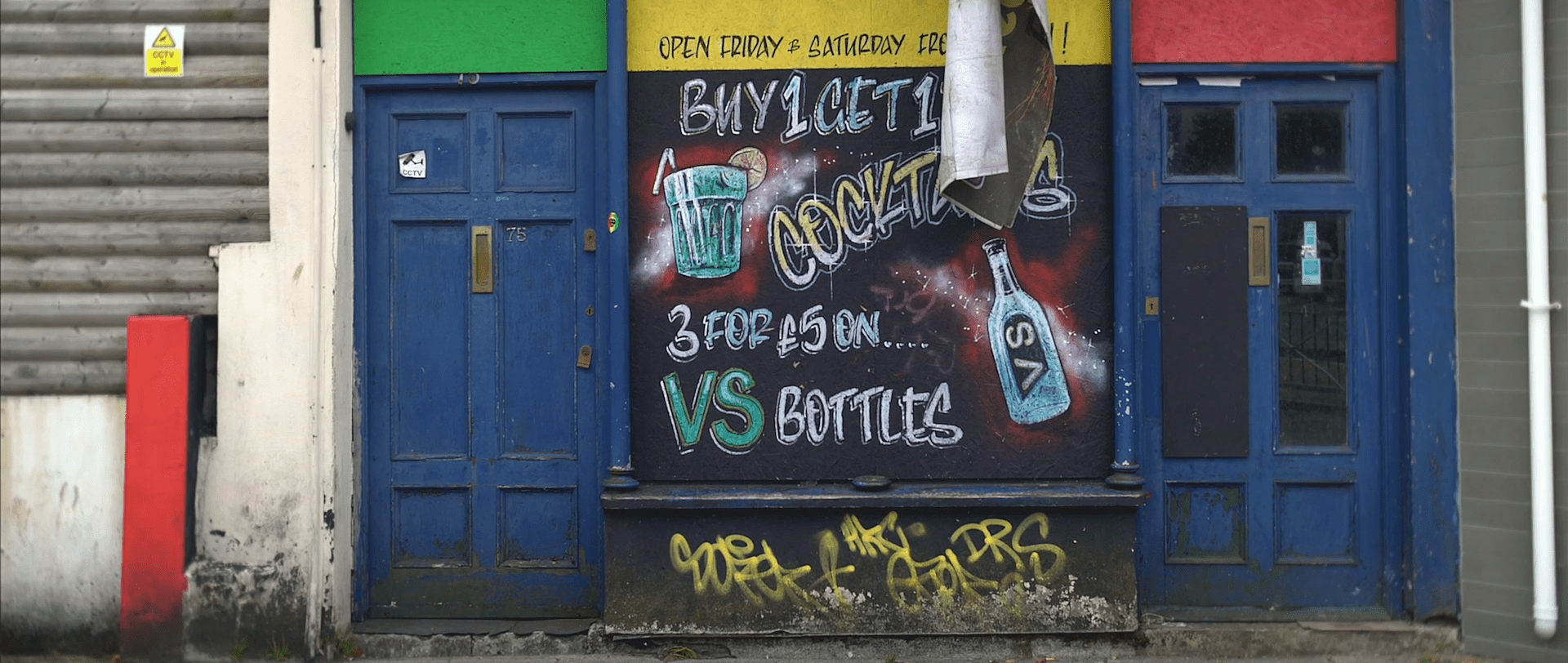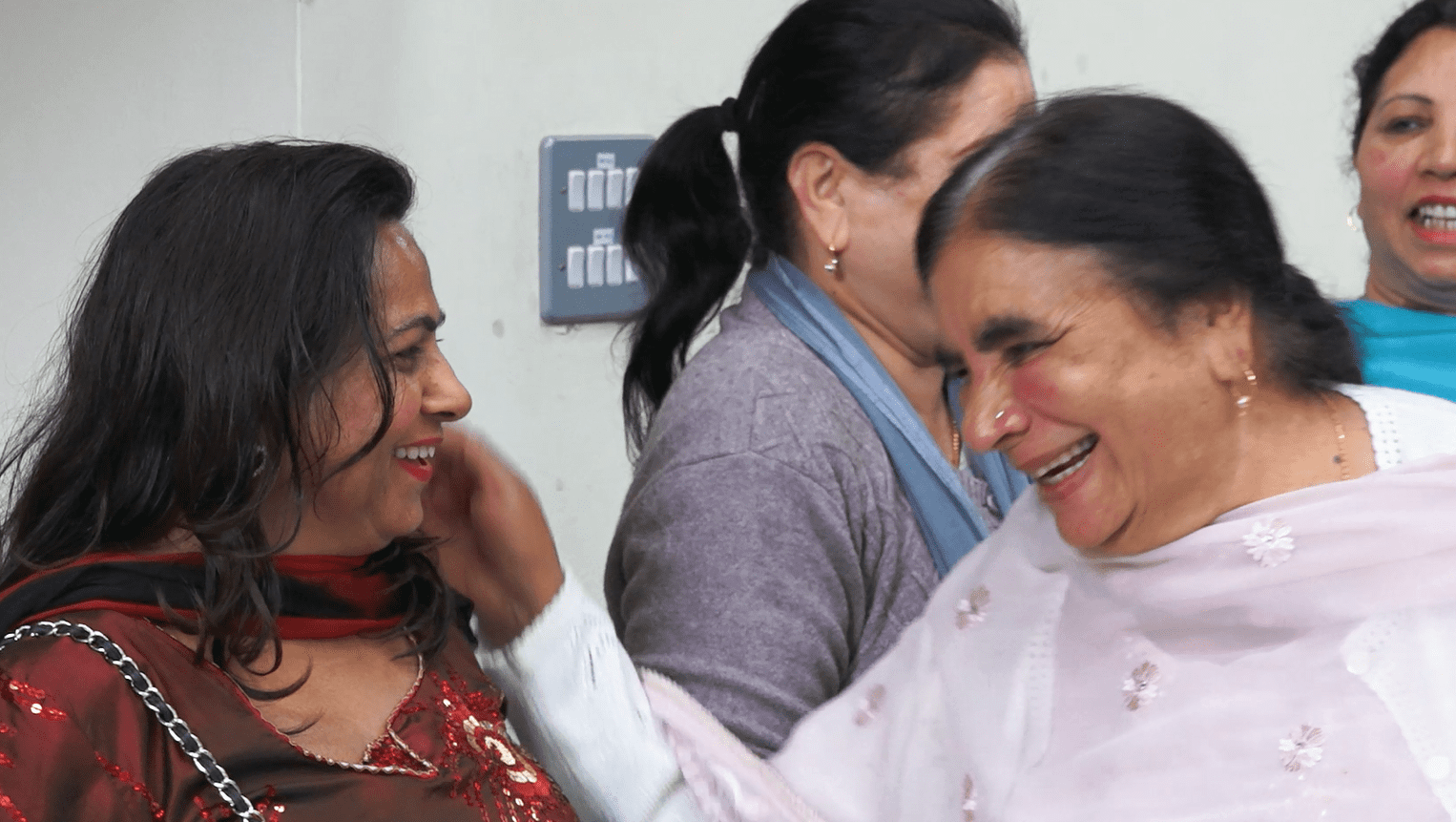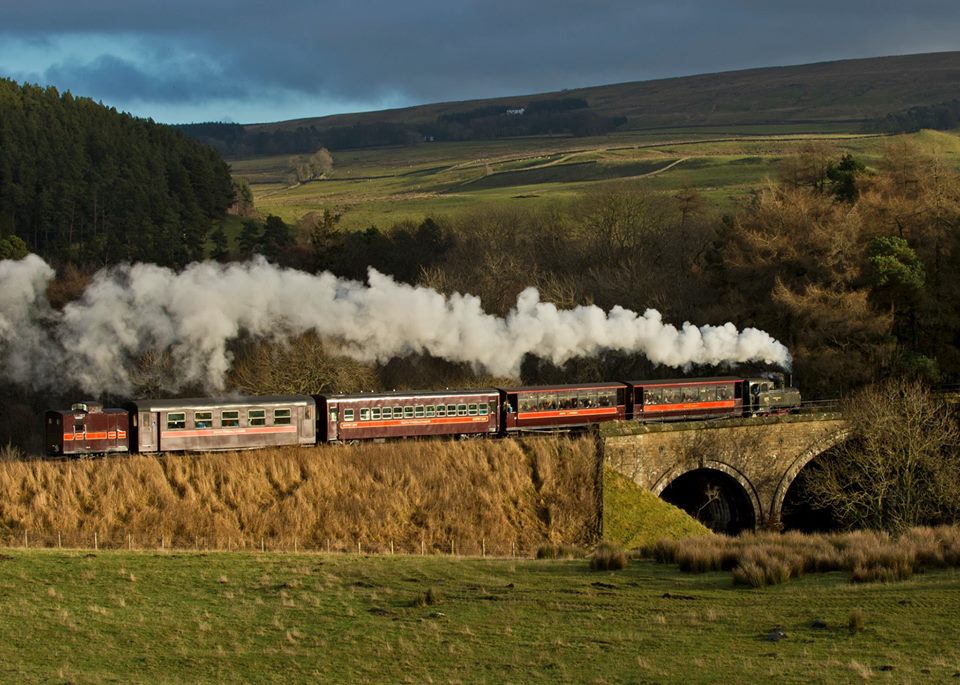Knowle West Media Centre (KWMC) is an arts and technology centre based in the council-built estate of Knowle West in South Bristol. KWMC started 25 years ago with an artist-in-residence, exploring practice around voice, identity, empowerment through camera technology.
Over the years, KWMC has grown to be many things – a community hub, a digital manufacturing space, and a neighbourhood “living lab”. At the heart of all its work is supporting people to make positive changes in their lives and community by working with the arts, technology, and care to co-design new ways of doing things and explore new futures. This means working across diverse areas including health, energy, skills, housing, and smart cities.
KWMC works in an urban context of significant disparities in wealth and opportunities. In the south of prosperous but unequal city of Bristol, Knowle West is a 100 year-old council-built estate and in the top 5% of England’s most deprived areas. It bears the scars of previous extractive industrial models. Until 1990 the largest employer was Imperial Tobacco, with workers’ wages partly paid in cigarettes. The longtail impact is seen in the stark mortality rates of elders & the fatalistic attitude towards health outcomes passed down the generations.
KWMC seeks to explore how Knowle West – and the many places like it- can more successfully navigate new waves of economic & technological change– such as automation & AI – in ways that don’t just reinforce structural inequalities and add to their economic precarity and sense of being “left-behind”.
Over the years KWMC has developed into a mature “test-space” for exploring with communities less extractive and more people and place led approaches to tech development and deployment. This has meant focusing on the cultures and practices that acerete around the development of new technologies (such as IP), as much as new gadgets and widgets.
In the process of experimentation, KWMC has a growing assemblage of community tech infrastructure, collated here. It includes:
- AI hub where people can gain hands-on experience with machine-learning algorithms and processes, to help demystify theoretical concepts and prototype their own chat bots and code.
- Urban Monitoring BristolAirQuality.co.uk is a collaboration between the University of Bristol and KWMC; running on the OPCR network, it provides Bristolians with the most feature and information-rich portal available, for viewing and exploring live and historical air quality data, generated within the city and surrounding area.
- To/Fro platform to digitally coordinate volunteering and mutual aid, developed as an emergency response during covid, it has matured into an on-going service.
Across all its work, KWMC centres on the values of working collaboratively and non-hierarchically with people from diverse backgrounds to develop new and creative models for achieving positive social change – and supporting people to develop the skills and confidence to be change-makers themselves.
“Robots, augmented reality, modern methods of construction. All this stuff is a completely new world for me. I’m a bit of a luddite really. But now I’m not scared. I can do this stuff. And now I feel a massive amount of ownership.”
– John, local resident and participant in Making Together, a project exploring community uses of new construction technologies.
“We’re a safe space for young people to try out lots of new [technologies] and be around people who believe in them. By the end of the project it’s really clear that they start believing in themselves too.”
– Megan, project lead, Future Legacy Project, a creative programme for young women and non-binary people to use digital technologies to make social action campaigns.
However, the kind of community-led infrastructure KWMC is developing, remains fragile and fragmented, as Melissa Mean, director of We Can Make at KWMC explains: “There isn’t really a funding model for community tech. The reality is a constant scrabble to stitch and weave different (small) pots together… [there is a] reluctance among funders to fund human capital as well as widgets and kit. For community tech to grow, we need to invest in the growers.”
KWMC finds the major challenges include: piecemeal and top-down funding; uneven knowledge and skills gaps; the extractive terms and conditions when using “Big Tech”; the poor fit between mainstream products and applications and community needs and aspirations; and, perhaps most frustrating of all, the failure of government and wider industry to recognise the community sector as a source of imagination and innovation in the development of new technologies.
KWMC’s future ambitions are to research, design and test new business models that explicitly address issues around ownership, ethics, and how the risks and rewards of tech innovation can be shared more equitably with communities.
